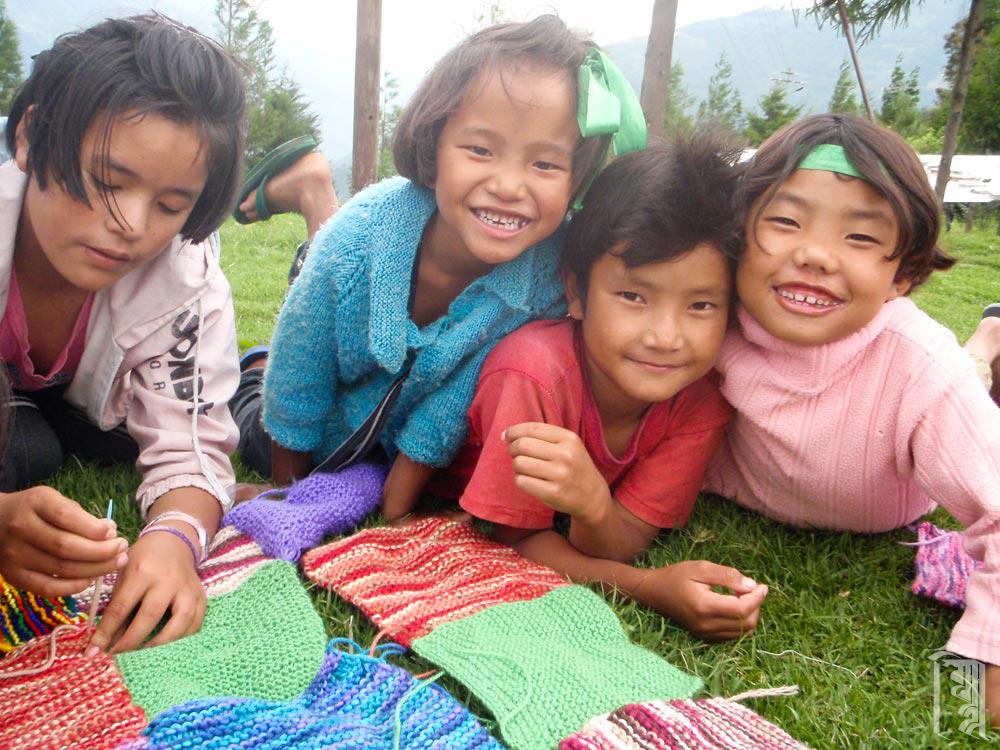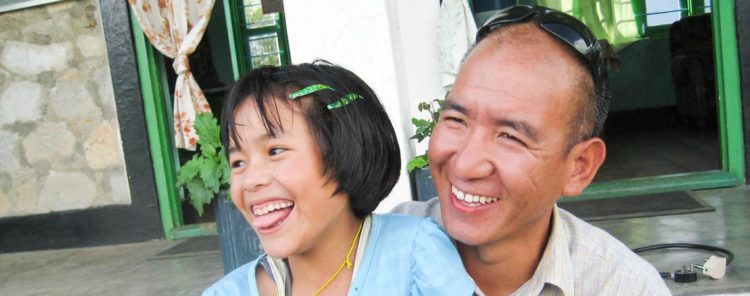Former Buddhist monk Lobsang Phuntsok felt his throat choke with emotion as he handed out laptop computers to 14 orphans before him. He’d first met these young adults as scared, scrawny and hungry four year olds desperate for a safe haven, some 12 years ago. They were among the first residents at Jhamtse Gatsal Children’s Community.
At the time he’d opened the doors of Jhamtse Gatsal to care for the most at-risk children in this remote Indian region, Lobsang had handed them toothbrushes and underwear – both of which the children had never seen before. Now they were receiving laptops to go to college. Two of them were seeking admission to medical school. Every one of those first Jhamtse orphans of college age were now enrolled to further their education.
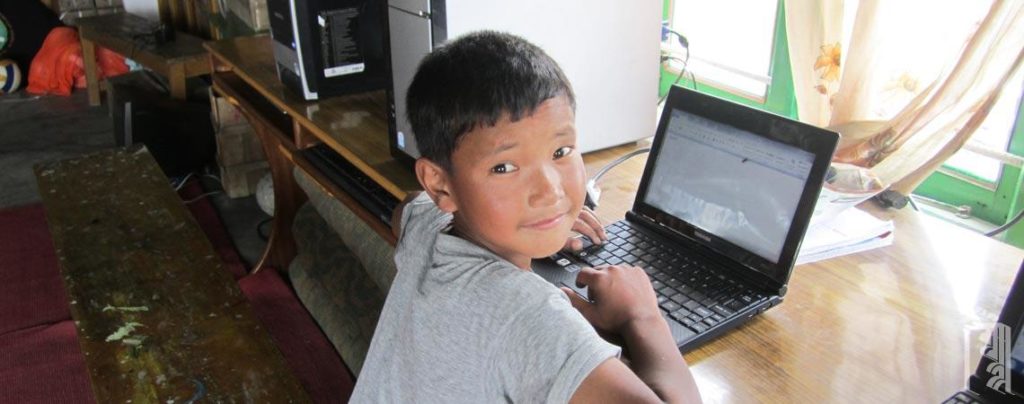
A rough start
Overcome with pride and joy at how the kids had flourished, Lobsang cast his mind back to his own childhood. For he too had once faced a bleak future. With his mother unable to care for him, Lobsang was raised by his grandparents from a young age. He doesn’t know how old he was at the time – maybe four or five.
He lived a nomadic life with his impoverished grandparents – wandering the mountains of north-eastern India with herd animals, forever on the move chasing new pastures. While he remembers parts of this life fondly, he also recalls the trauma of poverty and yearning for his parents’ love.
So traumatised did he become that he got into all sorts of trouble, and several times attempted to take his own life. His worried grandparents fretted over what would happen to the troubled boy as they aged, so they sent him to a monastery to live out his childhood.
His worried grandparents fretted over what would happen to the troubled boy as they aged, so they sent him to a monastery to live out his childhood.
A monk in training
Lobsang remembers the trip to Sera Je Monastery in South India as a time of intense emotion. He was devastated at leaving his grandparents, yet his adventurous spirit ignited with the promise of a new life.
They hitched a ride in the back of a truck to start the 10-day trip to the monastery. As the truck roared south, a young Lobsang gazed out with wide eyes watching the remote mountainous region give way to ever-increasing urban sights – a chaos of cities, people, buses, cars and trucks.
After arriving at the monastery the monks whisked him away, overwhelming Lobsang with their compassion, but also their rigorous training. They shaved his head, handed him robes and he embarked on hour upon hour of prayers and meditation.
Despite the harsh lifestyle, Lobsang remembers feeling in awe of the love, kindness and respect afforded him. The loneliness that had characterised his early years was gone. He finally felt accepted by someone other than his grandparents. He was beginning to feel okay for who he was.
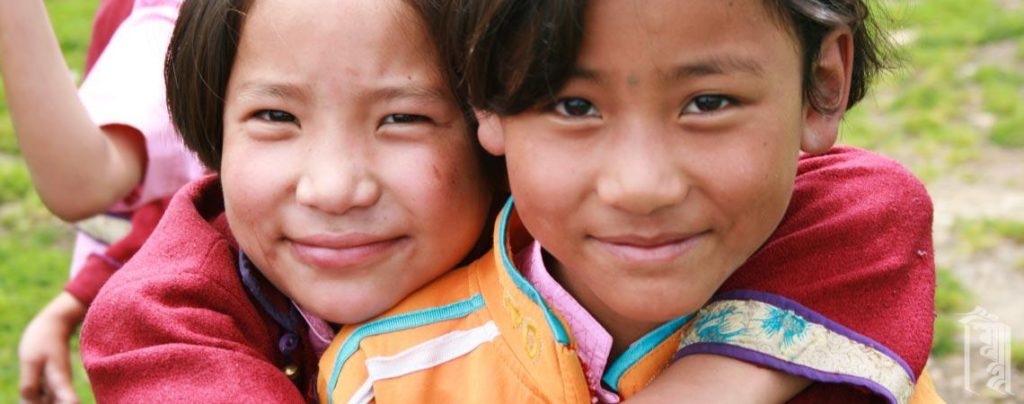
A rebellious spirit
Despite being embraced with compassion, Lobsang found it hard to kick his mischievous ways. His rebellious spirit simmered beneath the surface within the austere monastery walls. He tried escaping several times, forced back by a lack of money and the sheer distance to his grandparents and their far north-eastern home.
Once, Lobsang and a handful of other young monks escaped the monastery to watch a Bollywood romance movie. This was a serious act of defiance – with movies, especially romantic ones, deemed far too distracting and corruptive for a young monk in training.
An older monk caught the rebels at the movies and marched them home to face their teacher. They prostrated themselves before their teacher, devastated at having let him down. “He just looked at us with this compassionate face and could see how much shame we felt,” Lobsang remembers. “He said ‘if you’re going to break the rules, at least learn to break the rules wisely’. That was a real life lesson for me – the use of compassionate wisdom. You don’t have to make people feel bad for what they do. There’s another way of helping people become a better person.”
“You don’t have to make people feel bad for what they do. There’s another way of helping people become a better person.”
Rural monk hits the big smoke
More than a decade later, Lobsang’s sense of adventure was given further wind when he got an opportunity to be part of a special program under the guidance of His Holiness The Dalai Lama. Lobsang was among a handful of monks to undergo training in translating Buddhism for a Western audience. Several years later this training culminated in a trip to New York City for the 2000 Millennium Peace Conference.
“I’d gone from this remote mountain village to the monastery, then New York,” Lobsang says. “That trip was a big adventure.” Lobsang laughs at his naivety. He remembers standing beside then Secretary General of the United Nations, Kofi Annan, with no idea who he was, and sipping a red wine he’d mistaken for a juice. He felt dizzy for the rest of the day from the forbidden wine’s effects. “There’s this photo of me standing next to Kofi Annan holding the red wine,” Lobsang laughs.
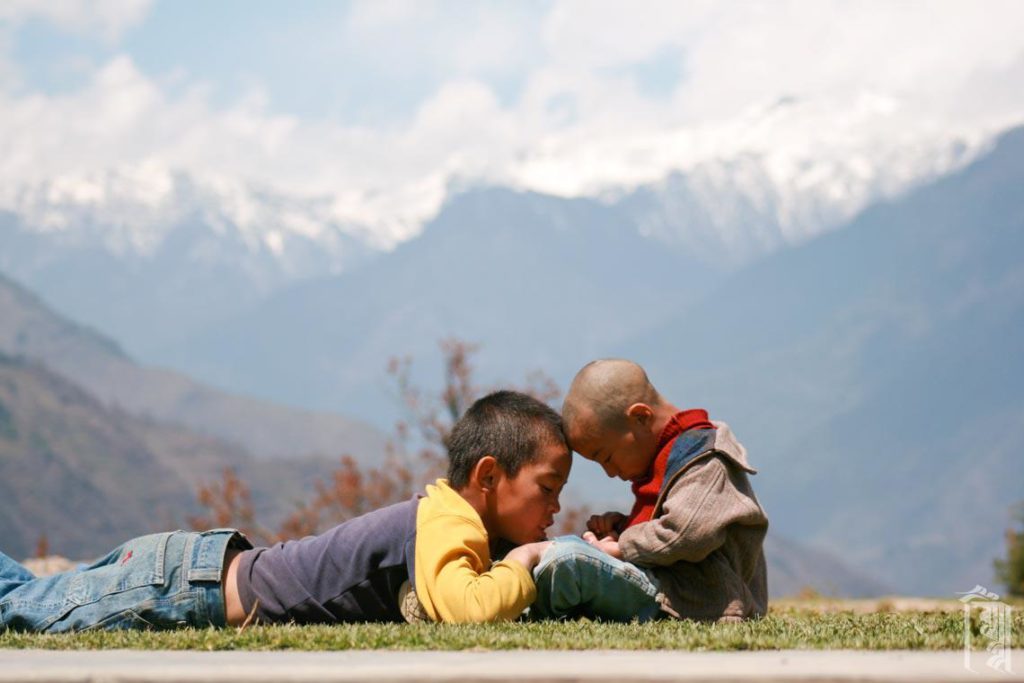
So different – and so much the same
As a result of the trip (and despite the red wine) Lobsang was invited to teach Buddhism in Boston for a year, after which they invited him to return. It was a difficult decision. “While I was at the monastery it made sense to talk about contentment and love and compassion but in America, with its food and everything looking perfect, there seemed to be no suffering, no pain. I wondered if what I learned in the monastery made sense here. But I soon found life is the same everywhere. And it reconfirmed some of the fundamental Buddhist teachings around peace and happiness – things like stuff doesn’t make you happy. Then I realised you guys have more problems than we do in this remote place with so little. Your problem is the stories you’ve created – that there are no good movies to watch, or this restaurant wasn’t any good. So I decided to stay another year. And I saw a lot of high school kids, and I did some hospice care. So that gave a sense of purpose to my being in America.”
“…it reconfirmed some of the fundamental Buddhist teachings around peace and happiness – things like stuff doesn’t make you happy.”
Restlessness
Despite his work in America and Canada, Lobsang continued to experience the restlessness that had characterised his life. He felt there was something missing. Something more he should be doing. It wasn’t until he returned to India to visit that he realised what he’d been called to do.
He saw children who were so similar to the boy he’d once been. Kids with nothing. Struggling. Yearning for acceptance and love. He longed to help them. “In America I was just talking about compassion but I didn’t have to actually do anything about it,” he says.
Lobsang dreamed of not only homing and schooling troubled children, but providing them with the love and compassion they’d need to thrive. He envisage creating a place of total transformation – not only for the children, but for the staff who’d dedicate their lives to becoming the best version of themselves. Helping these kids would enable Lobsang to practice the compassion of which he preached.
Hired for heart not certification
As he had no money to pursue his dream, Lobsang spoke of his desire to help the children of his homeland to people in America who immediately professed their support. They helped raise funds for his return trip, eventually resulting in the opening of Jhamtse Gatsal Children’s Community in 2006.
It wasn’t long before Lobsang’s sense of rebellion raised the ire of his advisors when he refused to hire staff based solely on their academic qualifications. Instead Lobsang hired his team based on his gut feeling. He employed two school dropouts to be house mothers for the kids. “They’d dropped out of school but I felt they’d understand the children’s pain,” Lobsang says. “I didn’t look at their skills or their experience but at them having had the same challenges as the kids.” Both women remain key staff at the community today.
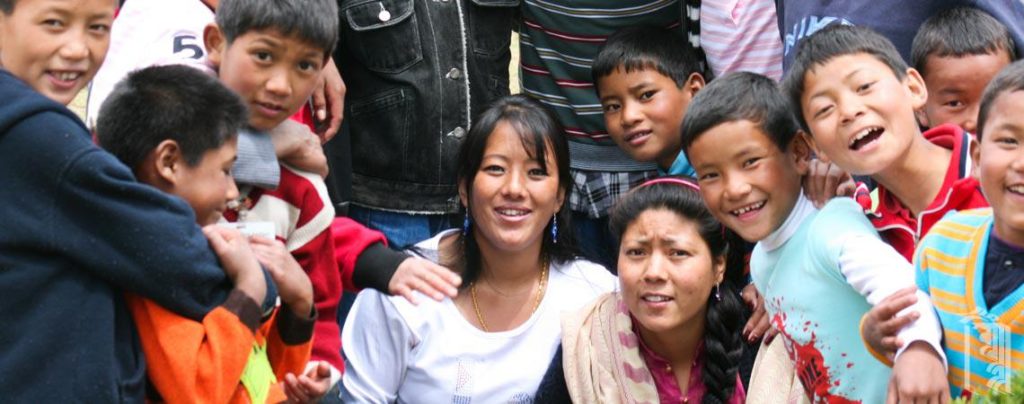
Rocky start
It was far from easy in those early days. “Starting was a disaster,” Lobsang laughs. “On the first day after the children came I was so tired and I opened my eyes and said ‘what have I done?’ The kids were crying, they were running everywhere and we didn’t know what do to do. These 34 kids had come out of trauma – it was like having 34 young Lobsangs. And we were a bunch of people who had no idea of what we were doing.”
While worried about how they’d proceed, Lobsang knew deep in his heart the intention was right. “There was always this sense of hope,” he says. “I knew we’d figure it out.”
Haven of hope
Today Jhamtse Gatsal Children’s Community homes and schools 90 children from preschool to year 12. It also operates an outreach program, providing help to more children in neighbouring communities with education, health care and sustainable agriculture.
But for Lobsang it’s not so much the physical support that makes him proud, but the emphasis on heart-based values. “The most beautiful thing about the community is the acceptance,” he says. “It’s okay to be who you are. It’s about understanding, patience, and love.”
Jhamtse Ghatsal’s first graduate students will each pursue their own dreams now, with their new laptops and a pathway to further education. More importantly though, they leave the community with the sense of self that can only come through exposure and love from those with kind, caring and compassionate hearts. Indeed, the words Jhamtse Gatsal are the Tibetan for “garden of compassion and love.”
Get involved…
You can find out more about Jhamtse Gatsal Children’s Community and donate at http://jhamtsegatsal.org/.
Lobsang will be in Perth from 5th -9th May 2018. For more information on Lobsang’s Perth visit please email
